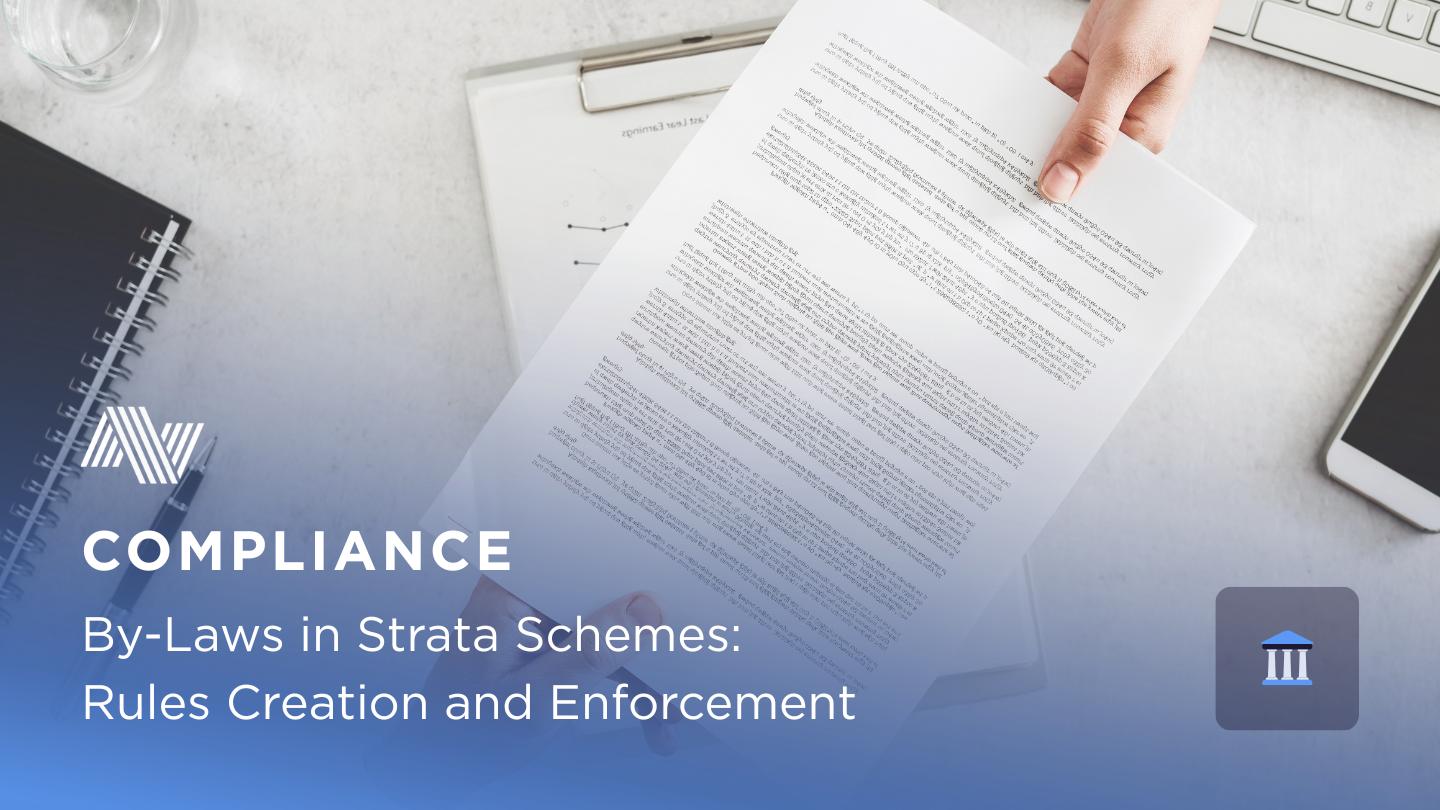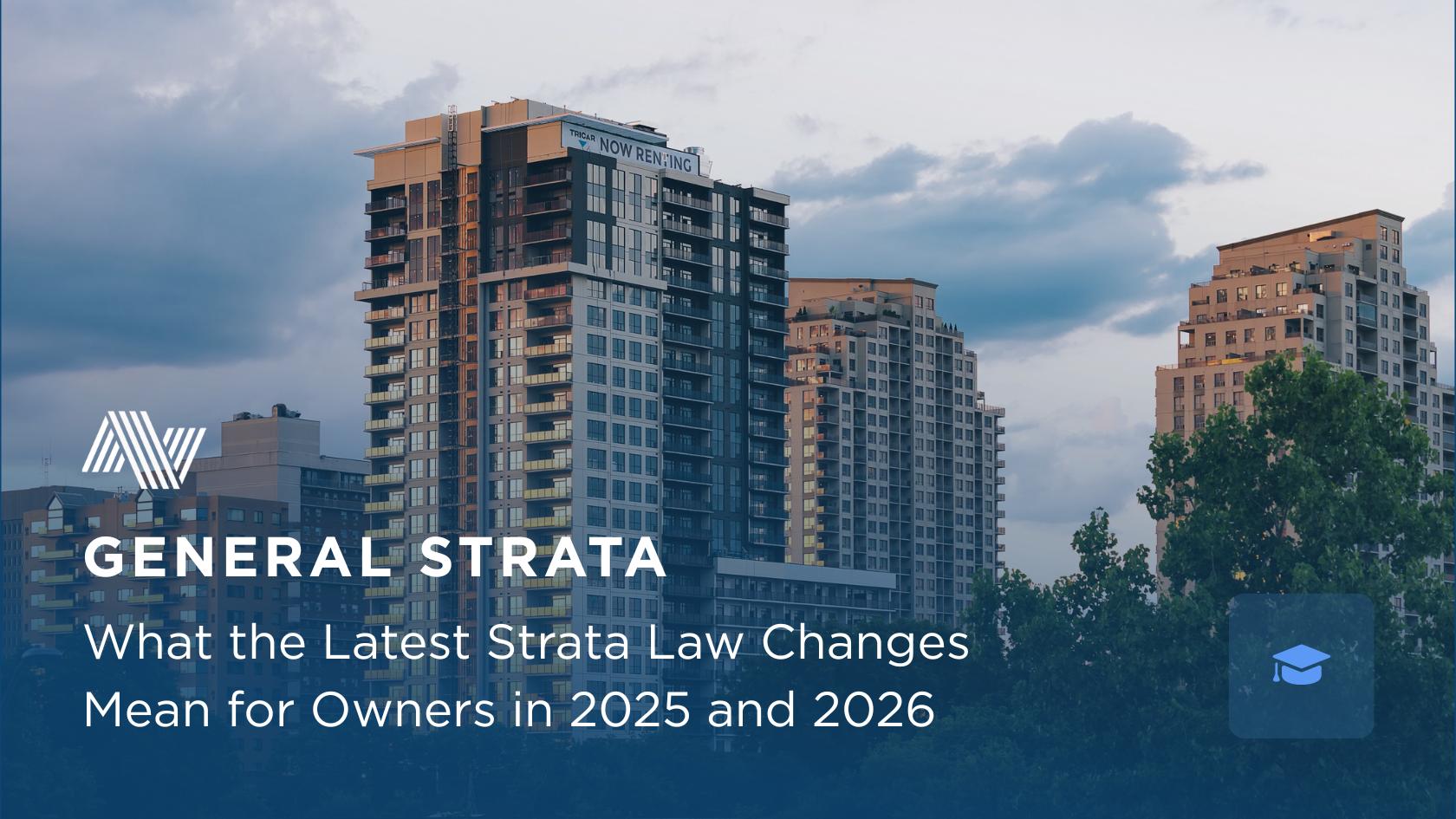By-Laws in Strata Schemes: Rules Creation and Enforcement
Note: This article is intended as a general guide only, and should not be taken as legal or professional advice. It’s essential to consult with a qualified professional or seek advice from your managing agent if you have specific questions or concerns about strata living.


The One-Minute Guide to By-Laws
If you only read one section, here are the essentials:
What they are – By-laws are the rules that govern behaviour, property use, and responsibilities in a strata scheme.
Why they matter – They protect property value, promote harmony, and provide clear standards for owners, tenants, and visitors.
How they’re made – Created or changed by special resolution of the Owners Corporation (OC), sometimes recommended by strata managers, or inherited from the developer.
How they’re enforced – Through warnings, compliance notices, fines, Tribunal orders, or escalation to authorities if needed.
Key tip – Review by-laws regularly to ensure they’re relevant, lawful, and reflect the needs of your community.
By-laws are the foundation of life in a strata scheme. They set standards for behaviour, protect shared property, and help prevent disputes. Whether you’re an owner, tenant, or committee member, knowing how by-laws are created, enforced, and updated is essential for harmonious and compliant strata living.
What are By-Laws?
Strata by-laws are the framework that keeps communal living fair and functional. They apply to owners, occupiers, tenants, and visitors and serve to:
- Regulate noise and disturbances.
- Prevent unauthorised changes to property.
- Govern use of common areas.
- Protect the scheme’s physical assets.
- Provide mechanisms to resolve disputes.
Who Needs to Know This?
- Lot Owners – Essential: Must comply with and vote on by-laws.
- Committee Members – Critical: Responsible for enforcement and updates.
- Strata Managers – Essential: Guide owners on lawful drafting and compliance.
- Tenants – Helpful: Daily behaviours are directly impacted by by-laws.
- Prospective Buyers – Useful: By-laws reveal a scheme’s culture and standards.
TL;DR: By-laws are the rules of strata living, ensuring harmony, compliance, and property protection.
Read more: Owners Corporation: Understanding the Central Legal Entity.
Creating By-Laws
By-laws can come from different sources and are legally binding once adopted. They can be:
- Created by the OC – via a special resolution (75% majority vote).
- Recommended by strata managers – drafted and submitted to owners for approval.
- Inherited – carried over from the developer or original strata plan.
Who Needs to Know This?
- Lot Owners – Essential: Must vote on new or amended by-laws.
- Committee Members – Critical: Oversee the process and ensure compliance with the law.
- Strata Managers – Essential: Provide professional drafting advice.
TL;DR: By-laws are made or changed through a 75% majority vote of owners and must comply with NSW law.
Read more: Strata Committee: Roles and Responsibilities.
Enforcing By-Laws
Rules are only effective if enforced fairly and consistently. Key methods include:
- Warnings and notices – informal reminders or formal notices to comply (Section 146 SSMA).
- Fines and penalties – applied if breaches continue.
- Tribunal applications – escalating disputes for binding orders.
- Working with authorities – e.g., council or police, where appropriate.
- Reviewing & updating – ensuring rules stay relevant.
Who Needs to Know This?
- Committee Members – Critical: Lead enforcement actions.
- Lot Owners – Essential: Must comply and may lodge complaints.
- Strata Managers – Essential: Coordinate notices, fines, and Tribunal processes.
TL;DR: Enforce by-laws consistently through warnings, notices, fines, and Tribunal action when necessary.
Read more: Disputes & Resolution – Conflict Resolution Processes.
Example By-Laws
So, what do these rules look like in practice? While every scheme is unique, common by-laws typically cover:
- Noise restrictions.
- Pets – permission, conditions, or prohibitions.
- Parking and vehicle use.
- Smoking and vaping restrictions.
- Waste and recycling practices.
These rules aim to balance individual freedoms with community expectations and legal obligations.
Reviewing and Updating By-Laws
By-laws should evolve with the scheme. Regular reviews help prevent outdated, unlawful, or impractical rules. Good practice includes:
- Consulting owners and residents.
- Reviewing industry standards and legal updates.
- Addressing new needs (e.g., EV charging, short-term letting).
TL;DR: Keep by-laws updated to ensure they reflect community needs and comply with the law.
Common Pitfalls with By-Laws
Schemes often run into problems when they:
- Create invalid or discriminatory by-laws – always check legal compliance before adoption.
- Fail to register changes with NSW Land Registry Services – without registration, new by-laws are unenforceable.
- Enforce inconsistently – apply rules fairly to avoid disputes.
- Neglect reviews – outdated by-laws can become unlawful or impractical.
- Focus on “petty” restrictions – overly strict rules can damage goodwill in the community.
Important: By-laws must comply with the Strata Schemes Management Act 2015 (NSW) and be registered with NSW Land Registry Services. For drafting or enforcement support, consult your strata manager or a licensed strata lawyer.
Related Files












